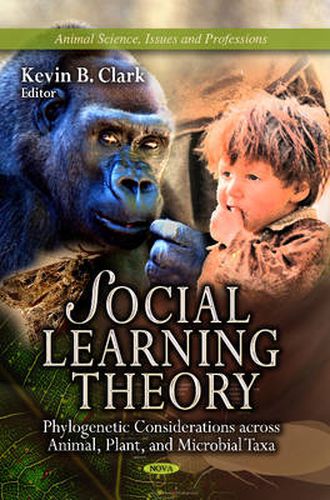Readings Newsletter
Become a Readings Member to make your shopping experience even easier.
Sign in or sign up for free!
You’re not far away from qualifying for FREE standard shipping within Australia
You’ve qualified for FREE standard shipping within Australia
The cart is loading…






Twentieth century social learning theories radically challenged the popular ideas about the role of nature and nurture in animal existence, particularly primate development and culture. Today, greater appreciation for the emergence and evolution of sociality within and across both taxonomic and technological boundaries has scientists exploring the possibility that, in addition to vertebrates, insects, molluscs, plants, and microbes; even robots, learn from observing and modelling the actions of others. This book presents these and additional exciting new themes to readers through a collection of chapters written by international authorities. The contents of this book bridge scientific revolutions in socio-biology to advance contemporary and perhaps future understandings in diverse topics, such as plant intelligence, robotic active learning, host-pathogen interactions, insect culture, fish and cephalopod mating habits, predator-prey dynamics, microbial socialty, and cognitive ageing.
$9.00 standard shipping within Australia
FREE standard shipping within Australia for orders over $100.00
Express & International shipping calculated at checkout
Twentieth century social learning theories radically challenged the popular ideas about the role of nature and nurture in animal existence, particularly primate development and culture. Today, greater appreciation for the emergence and evolution of sociality within and across both taxonomic and technological boundaries has scientists exploring the possibility that, in addition to vertebrates, insects, molluscs, plants, and microbes; even robots, learn from observing and modelling the actions of others. This book presents these and additional exciting new themes to readers through a collection of chapters written by international authorities. The contents of this book bridge scientific revolutions in socio-biology to advance contemporary and perhaps future understandings in diverse topics, such as plant intelligence, robotic active learning, host-pathogen interactions, insect culture, fish and cephalopod mating habits, predator-prey dynamics, microbial socialty, and cognitive ageing.